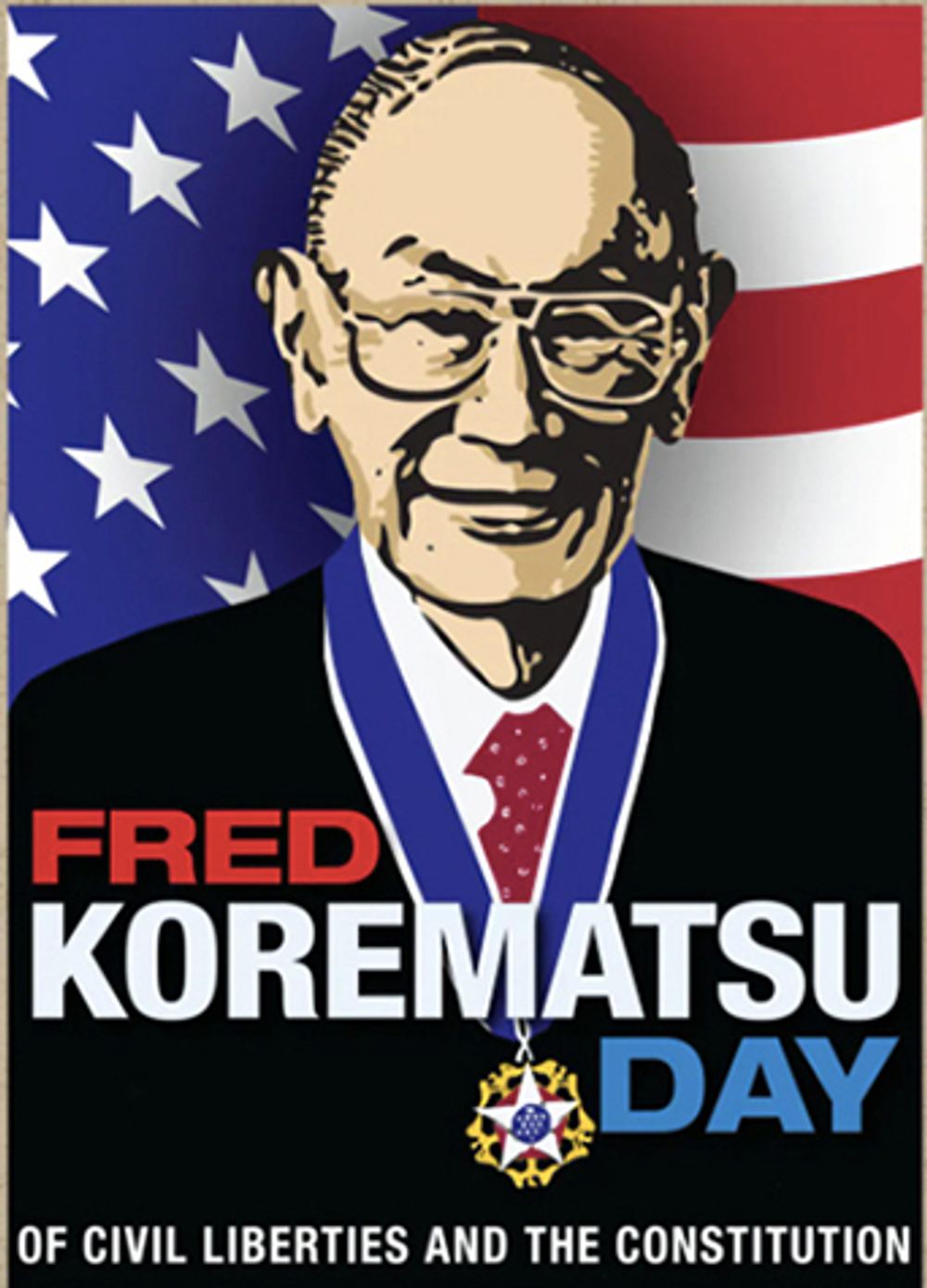Blog
Emil Guillermo: Remembering Fred T. Korematsu and a 6-3 Supreme Court from a different time

Before we all celebrate the calendar’s happy coincidence–the Feb. 1 start of both the Lunar New Year and Black History Month– there’s still time to mark the importance of the end of January.
Sunday, January 30 was the 103rd birthday of Fred T. Korematsu, remembered in legal history as the man who stood up and said no to the incarceration of more than 120,000 innocent Japanese Americans during World War II.
When the executive order for internment was handed down, Korematsu defied it, was arrested, and then was used by a sensationalistic media to fan the flames of hate by xenophobic warmongers.
The “J” word was like the “N” word. And it was used liberally throughout a cheering America.
The Northern California ACLU tested the constitutionality of the internment and took up Korematsu’s case to the Supreme Court.
If you think the high court is diseased by politics now, it was no less so in 1944. The court found it hard to defy the wishes of President Franklin Delano Roosevelt and ruled against the 14th Amendment rights of Korematsu and in favor of “military necessity.”
It was a 6-3 decision, a configuration of the court that resonates today. But back then, the majority even included known civil rights stalwarts like William O. Douglas and Hugo Black.
Korematsu spent time in a camp where even there he found himself an outsider, shunned by other Japanese Americans who believed he should have shut up and cooperated.
It was only in 1983 when advocates for Korematsu found an Army document that acknowledged the government presented false information to the court.
The suppressed information was enough for a group of young Japanese American lawyers to vacate Korematsu’s conviction in a federal district court in San Francisco.
The government never bothered to appeal the case at the district court level. And it didn’t bother to overturn the old case at the Supreme Court.
So, the 1944 SCOTUS decision still stands.
Some people may think the Supreme Court overturned the case when Chief Justice John Roberts commented during the 2018 travel ban case, Trump v. Hawaii.
But it didn’t.
Roberts merely rebutted Justice Sotomayor’s assertion that Korematsu and the travel ban were related. Roberts said Korematsu was irrelevant. Yet at the same time, he did manage to say “Korematsu was gravely wrong the day it was decided, has been overruled in the court of history, and-–to be clear—has no place in law under the Constitution.”
Sounds good, but that’s not quite a reversal in fact.
The fact is Korematsu provided some cover for Roberts, as he then went on to follow exactly what the Supreme Court did in 1944.
Roberts deferred to the president, in this case Trump, and upheld the travel ban.
What about Roberts’ words? They’re in the category of “dicta,” which is to say deep in the weeds of opinion for legal scholars to ponder. Or good for the “court of history.”
But in real court, it did not overturn the case as many believed.
Despite what Roberts said, the very ruling could be used again to justify the taking of individual civil liberties. Think of the threat to our democracy today and the lack of trust that exists in our elections and in the right to vote itself.
Are we possibly one autocratic president away from incarcerating all Chinese academics and scientists like Sherry Chen? For fear of China? Or “military necessity”?
Right now, it seems the U.S. has learned to harass them all one at a time.
I first wrote about Chen’s case in 2015. She’s a hydrologist for the National Weather Service in Ohio who was accused of spying for China, then arrested. The charges were dropped, but Chen ultimately was fired from her job. To this day, Chen is still seeking justice and has filed suit against the government for malicious prosecution and false arrest.
The level of xenophobia exhibited toward her and other Chinese scientists and academics we have seen before. And for the most part, we have prevailed, though not without some pain.
That’s why we must not forget Fred T. Korematsu.
California was the first to mark his birthday Jan. 30 officially in its Constitution in 2010. Others like Hawaii, VIrginia, Florida and even New York City have followed.
For yesterday, today, and tomorrow, Fred T. Korematsu Day is a milestone of democracy and an example of just how long that arc of justice takes to bend and touch us all.
I’ll talk about this more on my web show, Emil Amok’s Takeout/E. 234 on Facebook, YouTube, and Twitter, live at 2p Pacific or recorded later at www.amok.com

Emil Guillermo is an independent journalist/commentator. Updates at www.amok.com. Follow Emil on Twitter, and like his Facebook page.
The views expressed in his blog do not necessarily represent AALDEF’s views or policies.
Read Emil's full bio →